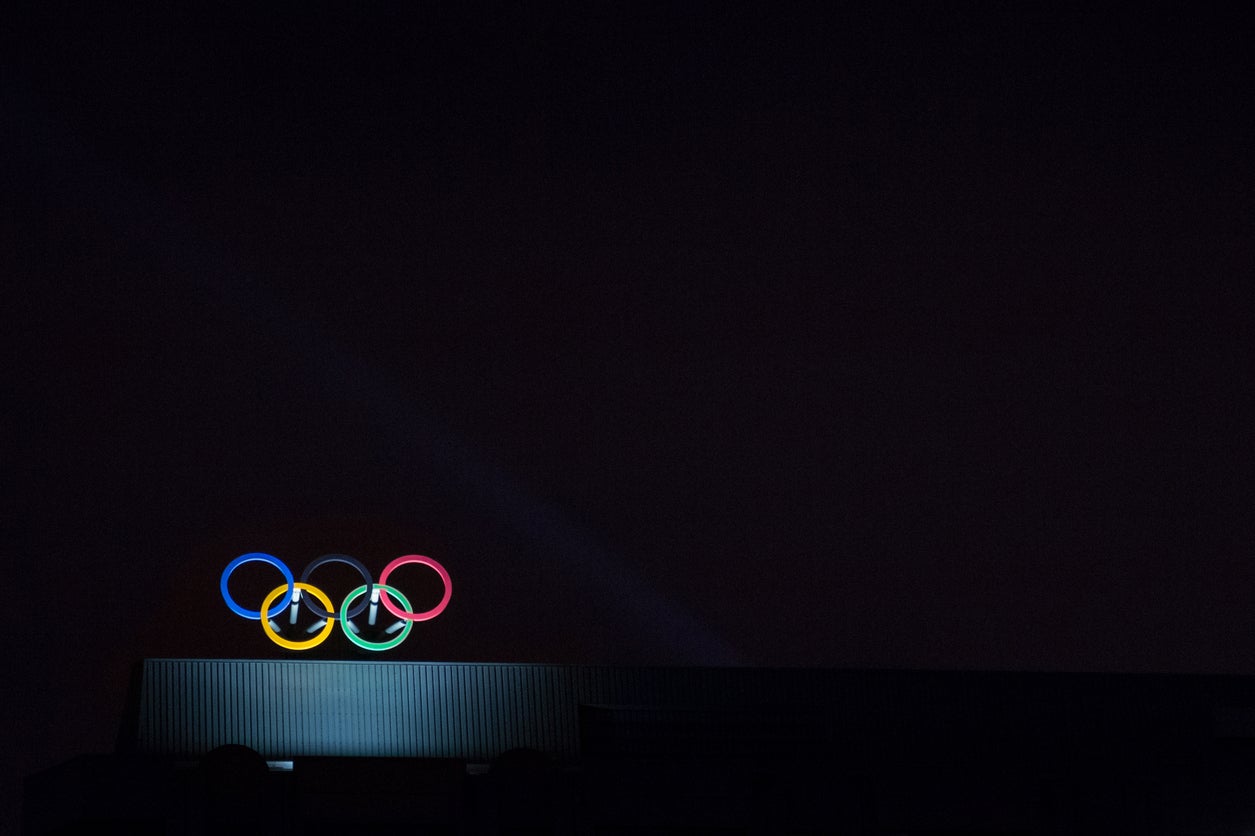Traffickers often see sporting events as an opportunity. That’s why people need to know to spot the signs
We need to educate people on how to recognise the signs of exploitation and what to do when they see them, writes Sarah de Carvalho


Human trafficking is defined as the exploitation of people through forced labour or sexual exploitation by means of force, fraud or coercion. It is a form of modern-day slavery. The International Labour Organisation estimates that more than 24 million people worldwide are trapped in human trafficking and exploitation.
Public awareness of these crimes has grown immensely, since It’s a Penalty first launched in 2014. Yet, there are still many that think trafficking happens far away, in other countries to other people.
Human trafficking does not discriminate. It takes place in every community around the world in some form, and no country is exempt. Victims of these crimes can be any gender, age, ethnicity or sexuality, but children and marginalised groups are particularly vulnerable.
Correcting these misconceptions about human trafficking is key to protecting survivors and preventing these crimes from taking place.
It’s a Penalty’s global campaign uses major sporting events as platforms to do just that. Reaching an average total of 180 million people worldwide, each campaign educates people about the issues, the penalties for offenders and the signs to look out for. It also equips the public with ways to report suspected crimes. To date, our campaigns have facilitated the protection of 16,955 victims of abuse, exploitation and human trafficking, as well as prevented thousands more from being victimised globally.
Survivor stories reveal that traffickers use the increased tourism around big events as opportunities to make money.
Sam Wijeyakumar, a survivor of human trafficking and the co-founder of anti-trafficking NGO and It’s a Penalty partner Rahab’s Daughters, reports that she was repeatedly sexually exploited during the Super Bowl in the US each year when she was trafficked.
The Global Slavery Index estimates that there are 37,000 people living in conditions of modern slavery throughout Japan. In 2020 alone, there were 5,166 cases of commercial sexual exploitation of children reported to Japan’s National Police Agency. However, the general public remains largely unaware that these crimes are taking place, and is uneducated about how to identify and report if they suspect something.
Following successful It’s a Penalty campaigns earlier this year during Super Bowl LV in Tampa and the Uefa European Championships, headed by NFL athletes and Gary Lineker respectively, the 12th global It’s a Penalty Campaign launched ahead of the Games to shed light on the issue in Japan and worldwide.
The Sustainability Department of the Tokyo Olympic Organising Committee asked It’s a Penalty to help educate people about what human trafficking is. With our founding partner A21 we have created a 30-second campaign film and posters including the signs to look out for and the reporting hotlines to phone in both English and Japanese.
High-profile Olympians and Paralympians including Usain Bolt, Cathy Freeman, Ellie Simmonds and Naoko Takahashi front the campaign, which is currently being shown on Japan Airlines, Emirates and Cathay Pacific flights and in Haneda and Narita airports, as well as on the metro and JR East trains across transport networks in Japan and to an audience of millions at the famous Shibuya Crossing in Tokyo.
Working with our partners Rahab’s Daughters and local Japanese NGOs including Sport for Smile and Zoe Japan, we have established a 24/7 bilingual human trafficking hotline – the first of its kind in Japan – which is now operating to receive reports of suspected cases. The hotline will continue after the Olympics to ensure those who are trafficked get the help they need.
In recent years, major sporting events, like the Olympic and Paralympic Games, the Fifa World Cup and the Super Bowl, could see an increase in trafficking. Traffickers see the influx of sports fans and tourists to a city during a major sporting event as a business opportunity for commercial sex.
Law enforcement agencies have taken it upon themselves to launch sting operations during major sporting events due to the increased occurrence of human trafficking and exploitation. This has resulted in the mass arrests of perpetrators and the recovery of survivors. During an FBI operation at the 2020 Super Bowl in Miami, 47 traffickers were arrested and 22 survivors were identified, according to the Miami-Dade state attorney.
The increased risk of human trafficking and exploitation associated with major sporting events does not, however, mean that these crimes only take place in a city while it is hosting such an event. Human trafficking and exploitation already exists in every city around the world, and will continue long after an event’s closing ceremony.
The pandemic’s impact having resulted in increased incidences of human trafficking and exploitation worldwide, It’s a Penalty’s campaign in Tokyo this summer is more important than ever.
Sarah de Carvalho is CEO of It’s a Penalty and a global child and human rights advocate
To report a suspected case of human trafficking, exploitation or abuse anywhere in the world visit It’s a Penalty. In Japan, you can dial the hotline on: +81 (0) 50-3185-3322